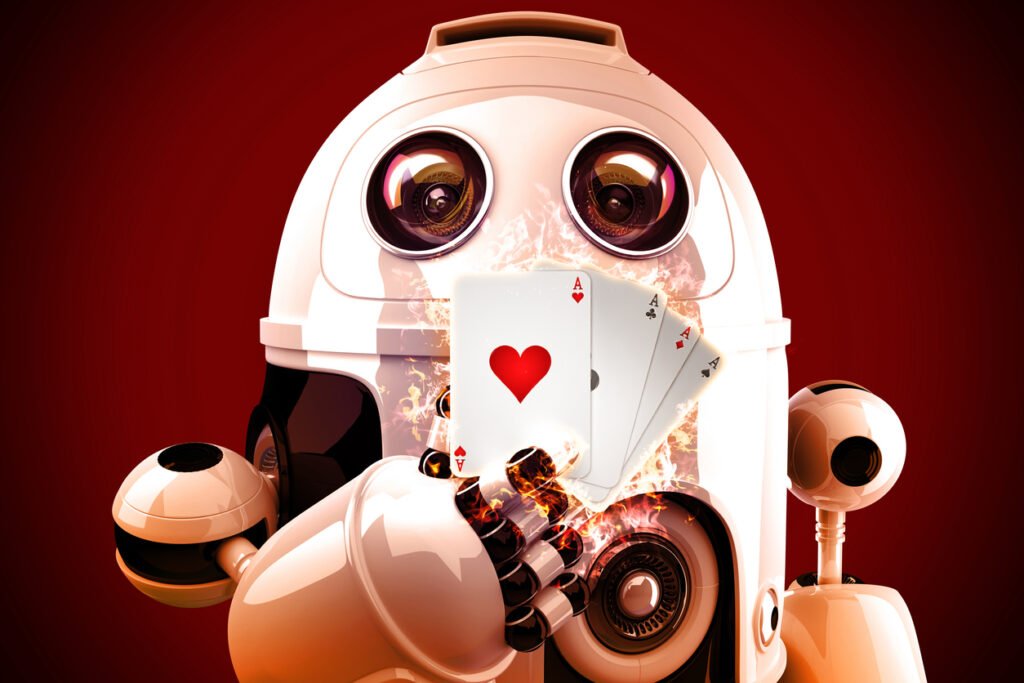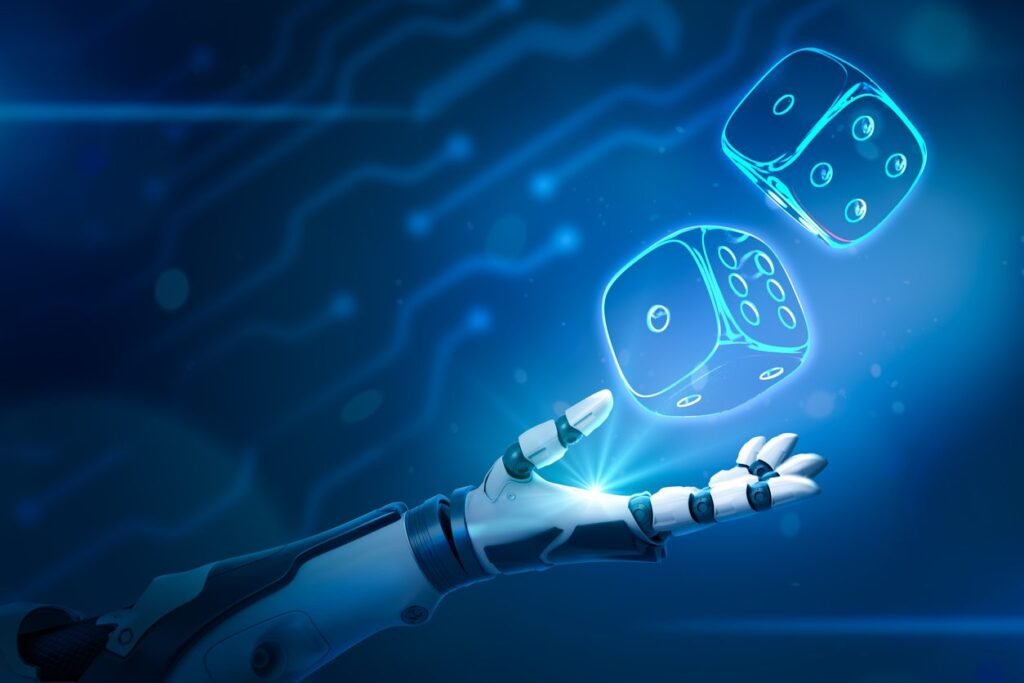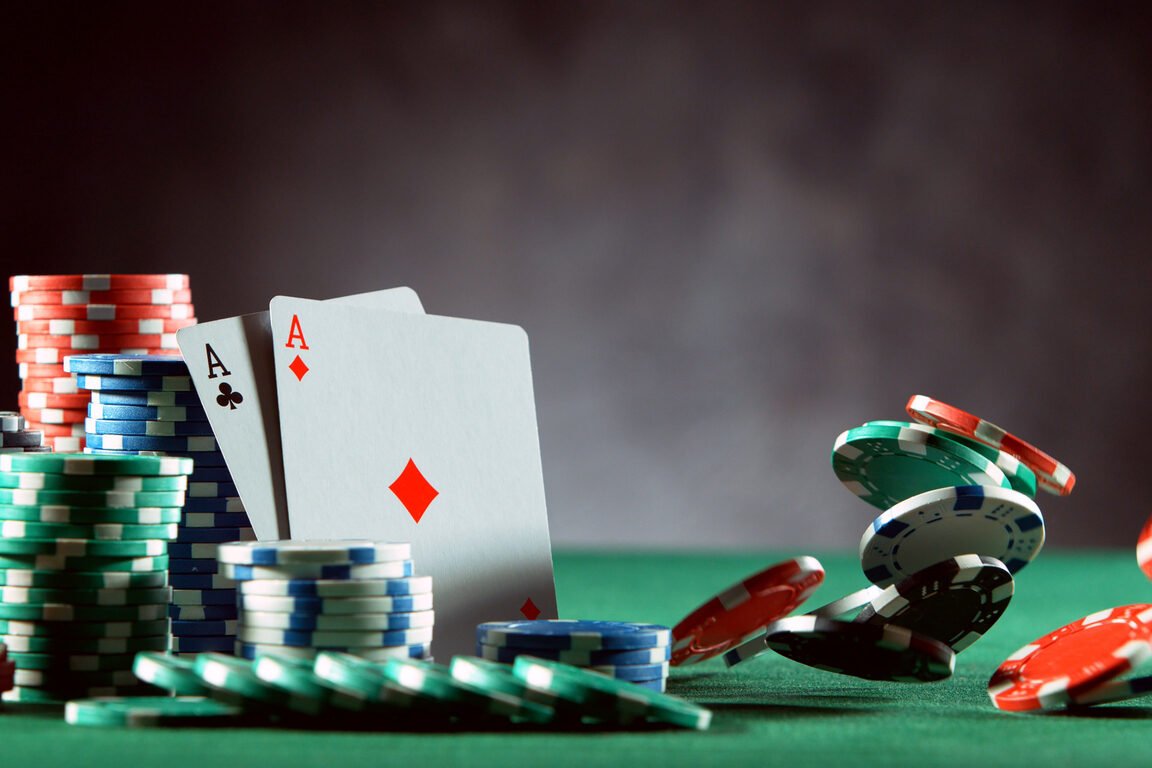Poker Was Just the Warm-Up

When an AI system beat top poker professionals at no-limit Texas Hold’em, many brushed it off as a cool party trick. After all, games are just games, right? But poker isn’t like chess or Go. It’s messy, full of bluffing, incomplete information, and human psychology — a lot like the real world. Winning consistently at poker means understanding risk, adapting on the fly, and predicting your opponent’s behavior in conditions that are never fully transparent.
That’s exactly what makes this AI breakthrough so important. The robot didn’t just play the cards. It understood strategy in a way that resembled real decision-making. Poker served as a training ground for models that thrive in uncertain, high-stakes environments — the same kind of environments you find on Wall Street. So when scientists say the next step is applying these skills to finance, they’re not just being ambitious. They’re revealing where AI could be heading — toward money markets, hedge funds, and maybe one day, your retirement portfolio.
AI Can Now Make Decisions Without Seeing the Whole Picture
What makes poker a tougher problem than chess is that you don’t get all the information. You have to make choices based on guesses, hunches, and probability — skills that used to be considered uniquely human. But AI models have now evolved to deal with incomplete data sets, learning to win based on probabilities and long-term strategy rather than brute-force calculation.
This ability to navigate uncertainty is exactly what financial trading requires. Markets are chaotic. Prices change based on rumors, geopolitical shifts, and thousands of unpredictable human reactions. An AI that can succeed in poker is well-positioned to digest signals from the financial world and make trades that rely on reading between the lines. The robot doesn’t need a perfect view of the board. It only needs a deep enough understanding of pattern and risk to make consistent, profitable moves — just like a top investor.
Algorithms Already Dominate the Financial World
It might sound futuristic to say a robot could master Wall Street, but in many ways, it already has a head start. Over 70% of trading on major U.S. stock exchanges is done by algorithms. These systems operate faster than any human, analyzing price changes and executing trades in milliseconds. But what’s changing now is the level of sophistication.
Where previous algorithms followed rigid formulas, newer AI models can adapt in real time. They’re learning from new data, changing strategies on the fly, and in some cases, teaching themselves how to optimize for long-term gains instead of just quick profits. The poker-playing AI represents the next generation of this tech — one that understands competition, deception, and human error. And that makes it not just a trader, but a strategist. On a volatile trading floor, that edge could mean everything.
The Ethics of AI Trading Are Still Murky
When an AI can outthink poker champs or outperform fund managers, it’s easy to get excited about the profits. But there’s a growing debate about the ethical implications of turning decision-making over to machines — especially in markets that affect billions of lives. What happens when a robot crashes the market by misreading a trend? Who’s responsible if it exploits a loophole no human noticed until it’s too late?
Finance is deeply tied to trust and regulation. And while AI might be faster and more accurate, it’s also harder to audit. Some algorithms are so complex that even their creators don’t fully understand how they reach conclusions. This opacity could pose major risks if AI-driven systems start influencing not just stock portfolios, but interest rates, commodities, or currency values. The speed at which AI is evolving in finance is impressive, but it’s also outpacing our ability to monitor and control it.
Wall Street Is Already Recruiting AI Like This

Behind closed doors, major financial firms are racing to get their hands on AI that behaves like the poker-winning bot. Hedge funds, investment banks, and private equity firms are quietly building teams of machine learning experts, training algorithms to forecast market swings, spot arbitrage opportunities, and even predict consumer behavior before it shows up in quarterly reports.
Some firms are even using AI to read news headlines, monitor social media sentiment, and digest central bank speeches — not over hours, but in real time. These systems don’t just trade faster. They analyze the emotional tone of the market and respond before human traders can even finish a sentence. The poker bot, with its ability to manage pressure and hidden information, is the prototype for a future where algorithms don’t just trade, they compete like high-stakes gamblers, with the world economy on the table.
Poker AI Learned to Handle Bluffing, A Skill Wall Street Lives On
One of the most remarkable aspects of the poker-playing AI wasn’t just that it calculated odds better than a human — it was that it could bluff. It learned when to pretend it had a better hand and when to fold under pressure, all by observing patterns and adapting to its opponents. That kind of strategic deception is surprisingly relevant to financial markets.
Wall Street, like poker, is a constant dance of perception. Traders make moves not just based on data but on how they think others will react. AI that can simulate this level of psychological play opens up an entirely new kind of market strategy. It’s not just about crunching numbers anymore. It’s about outwitting human intuition — and winning even when the cards aren’t in its favor. That makes this technology both exciting and unsettling, especially when billions are at stake and human competitors can’t see the bluff coming.
AI Doesn’t Get Tired, Emotional, or Overconfident
One of the biggest weaknesses in human trading is, well, being human. Emotions cloud judgment. Stress impacts decisions. Overconfidence can lead to risky bets. Poker players know this all too well, which is why staying calm under pressure is part of what separates champions from amateurs. But AI? It never panics. It doesn’t second-guess. It just keeps calculating.
On Wall Street, where fortunes can rise or fall in minutes, this consistency offers a massive edge. AI systems can trade 24/7, stay focused in chaotic markets, and never deviate from their optimization goals. While humans burn out or hesitate, the algorithm stays steady. And that reliability isn’t just useful — it might become the new standard. Traders could soon find themselves not only competing against machines, but also being judged by how well they can work with them.
Financial Markets Are the Next Great AI Arena
After mastering games, language, and image recognition, finance is shaping up to be the next proving ground for artificial intelligence. It’s a complex environment filled with incomplete information, competing incentives, and enormous stakes — exactly the kind of conditions AI has been preparing to conquer.
What makes Wall Street so appealing to AI developers is that it’s a real-time lab. Every market move produces fresh data. Every price shift offers a feedback loop. It’s like training in a living simulation — one that rewards fast learning with real-world consequences. For AI, this isn’t just about making money. It’s about refining models in a system that never sleeps. And for investors, it raises the stakes: adopt the tech or risk being outmaneuvered by machines that don’t take breaks.
Regulators Are Playing Catch-Up
As AI moves deeper into financial decision-making, regulators are struggling to keep pace. Traditional oversight tools aren’t equipped to handle autonomous trading systems that evolve rapidly and behave unpredictably. And with opaque algorithms making trades in microseconds, identifying errors — or manipulation — becomes a daunting task.
There’s growing concern that a poorly tuned algorithm could trigger flash crashes or market disruptions before human overseers even realize what’s happening. And if multiple AI systems interact in unexpected ways, it could lead to feedback loops that destabilize markets. That’s why some financial watchdogs are calling for increased transparency, ethical guidelines, and even kill-switch mechanisms for rogue trading bots. The future of finance might be digital, but without human guardrails, it could also be dangerously fast and hard to control.
Wall Street’s Future Might Be a Poker Table with No Humans

What started as an experiment in bluffing has turned into a vision of the future. As poker-playing AI evolves into market-making AI, it’s not hard to imagine a financial world where machines outnumber people in both volume and value. Trading floors could go quiet while servers do the shouting. Financial strategies may emerge from neural networks instead of boardrooms.
This shift doesn’t mean humans will disappear — at least not yet. But it does suggest that the qualities once thought uniquely human, like intuition, deception, and long-term planning, are no longer exclusive to us. The robot that mastered poker isn’t coming for your chips. It’s coming for your portfolio — and it’s bringing a playbook written in code, not instinct.
